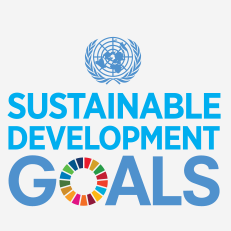
This section describes recent proposals under consideration by OQSI potential contributions that may be:
- added to
- substitute
We receive a large number of suggestions on "what needs to be included" in project cycle due diligence procedures. There are many. We work to boil these down to creating the essence of "good practice" in terms of transparency, utility and ease of implementation in terms of a cloud-based system service. Currently out of a wide range of suggestions the following themes remain in the pipeline for consideration. All have been supported by proof of concept as well as application justifications.
|
A permanent theme that has been repeatedly drawn to our attention is a rising frustration on the part of project managers, and some donors, on how to manage project design in the context of the UN Sustainable Development Goals (SDGs).
The main concern is that there is a significant gap in analytical techniques to link up the macro-economic perspectives of SDGs to what specific projects should do in support of them. The problem is that SDGs initiatives to meet them need to be multi-factorial and embrace many different domains of application and required expertise. This creates significant problems for project design teams and, in some cases, ministries. There is a need to assemble the required expertise which also possesses the experience and capabilities in applying appropriate analytical methods to create transparent links between the macroeconomic and microeconomic (project level) activities. Without good design and macro-micro cohesion is self-evident that project monitoring and evaluation in the context of SDGs is problematic. Project assessors report that many projects are being submitted for funding that use SDGs as headline justifications but which lack any convincing organic or functional content that demonstrates any feasibility of the projects to deliver the stated sustainability objectives.
Given the already high levels of project failures recorded to date this state of affairs continues to be of concern.
The OQSI Due Diligence Design Procedure (3DP) was developed to address this question by ensuring all factors are taken into account and given appropriate consideration.
The 2019 Sustainable Development Report identified four significant performance issues in the international Agenda 2030 project portfolio. There were the following: The form of economic development adopted was negatively correlated to critical SDGs so that with economic growth:
- Inequality and in particular income disparity is increasing
- Sustainability is falling
- Temperatures continue to rise as a result of ineffective climate action
- Economic Rates of Return (ERR) measured in terms of:
- OBA-1: Cost-benefit analysis (financial return)
- OBA-2: Cost-real incomes analysis (income disparity reduction)
- Rates of Return to the Environment measured in terms of:
- OBA-3: Cost-carbon footprint analysis (carbon footprint reduction)
- OBA-4: Cost-carrying capacity augmentation analysis (Establishing neutral or positive growth)
In 2021 several OBA-1 analyses applying standard Cost-Benefit Analysis showed significant errors in terms of the impact of rising temperature and water deficit even within early parts of cash flow projections. SEEL has linked this to the short term variance maximum and minimum temperatures that occur regularly around the average temperature trend. In other words climate change is already impacting the feasibility and estimates of new production sites. We are working wirh SEEL to develop locational-state genotypic sequencing to lower the risk of project plans through production system optimization.
We have removed the listing of topics under consideration for inclusion in the current due diligence design procedures because the emphasis on analytical tools has simplified our assessment procedure and in many cases removed previous propositions from consideration.

